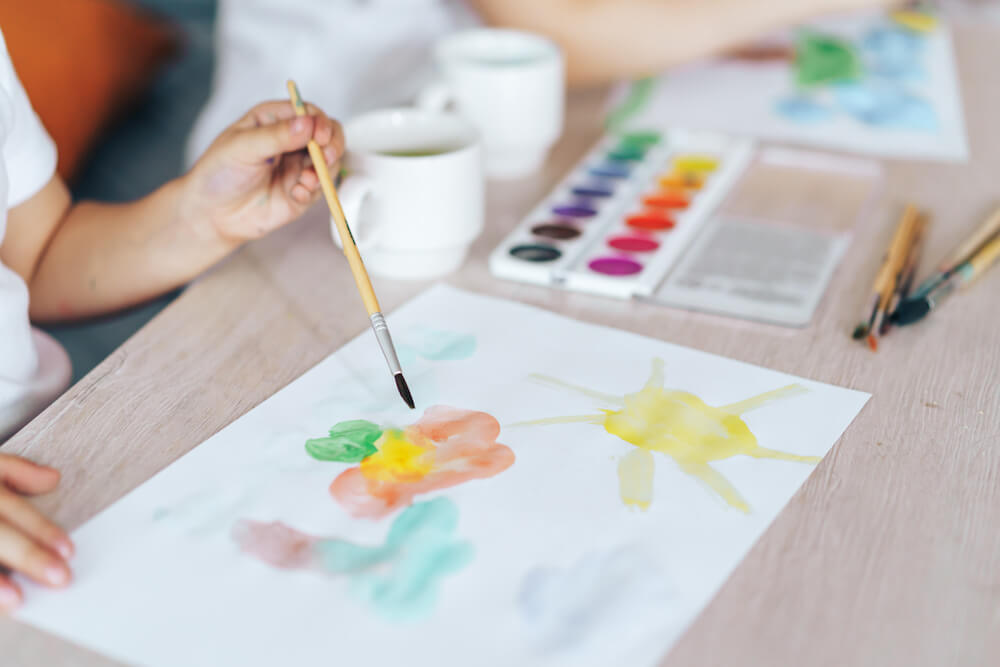Key points:
- Children need to develop emotional intelligence to manage their emotions, just like adults.
- Young children who participate in social-emotional skills programs show less aggression and anxiety and become better at solving social problems.
- Improving emotion regulation leads to benefits in all areas of a child’s life, including paying attention, achieving more in school, and showing lower levels of stress.
- Parents can foster their child’s emotional intelligence by naming emotions, planning for strong feelings, using playtime to identify emotions, reading books to teach about emotions, and recognizing other people’s feelings.
Can you remember the last time you felt really frustrated or sad? What techniques or skills did you use to manage your emotions? What you did is known as emotional intelligence.
Just like adults, children need to develop strategies for managing their emotions. Many times, toddlers and young children will bite or hit out of frustration, or have a hard time calming down after an exciting day. It is a parent’s responsibility to teach them the skills needed to identify and healthily express their feelings. Although aggressive behaviors in young children may be challenging for parents, these situations are a great learning opportunity for them to identify and express their emotions!
Young children who participate in social-emotional skills programs show less aggression and anxiety and become better at solving social problems. In fact, developing emotional intelligence, regulating emotions, and not reacting in impulsive or hurtful ways is now recognized as a critical factor in children’s psychological health.
One thing is certain, we are not looking to change a particular feeling, we don’t want children to think that a feeling is “bad”, instead, we want them not to be overwhelmed by it. In other words, if your little one feels discouraged, encourage them to not give up; or if they feel anxious, talk it through with them so that they don’t end up missing out on an adventure!
Overall, improved emotion regulation leads to benefits in all areas of a child’s life. Children who can regulate their emotions, pay more attention, achieve more in school, are better able to solve conflicts with their peers and show lower levels of stress!
Foster your child’s emotional intelligence
If you want to help your little one regulate their emotions, here are few things you can do:
1. Name emotions
Toddlers and young children have limited language skills, but parents can pay attention to their behaviors –be it yelling, pushing, crying, biting, or withdrawing. The behaviors they show are of great insight to know what they are feeling, then parents can help them put a name to it. When your child experiences an emotion, name it. For example: “You are happy! I can see you’re happy to be at the park”.
As children grow, you can use this strategy to introduce new words that will build their emotional vocabulary: “You look startled. That thunder was really loud”.
2. Plan for strong feelings
Help your little one manage intense feelings by creating coping strategies!
Start by not classifying your little one’s emotions as good or bad; instead, neutralize their response to strong emotions. If you tell your child what to feel and that differs from what they are feeling, they will begin to feel confused about their feelings and stop trusting their internal signs! So let them know that everyone reacts and feels angry, sad, or scared at some point in time, emphasize that it happens to everyone, even yourself. After your little one has calmed down, summarize what happened and incorporate their emotions into the dialogue.
3. Use playtime to identify emotions and build emotional intelligence
When your child struggles with aggressive behavior, help them verbalize what they can and cannot do. A great way to do this is through play! Play is a natural way for children to experience, explore, and talk about various emotions. A simple way to do this is to use stuffed animals or dolls to act out some scenarios your child can relate to. These games are a great tool to model emotional regulation!
4. Reading time
If you want to teach your child about emotional intelligence and empathy, use books with pictures. When a happy, scary, or frustrating event occurs in a story, pause and look at the picture together. Examine the characters’ facial expressions, their body language, and what they are doing. Use this same technique when you watch a movie together, for example, when you see someone smiling, say “She must be happy” and continue with other expressions.
5. Recognizing other people’s feelings
Learning to empathize with others and respond appropriately to another person’s feelings is an important skill when building relationships. Similar to the strategies mentioned above, you can start by showing pictures and drawings or role-play situations to discuss the words, body language, and experiences that portray a person’s feelings.
Remember your little one is learning from you, try to set an example for them. Stay in tune with your feelings, and don’t try to hide them. If you are angry with your child because of something they did, try to explain what happened or what made you mad, instead of just showing your anger.
Knowing how to regulate and identify emotions is a very important skill to cultivate. As psychologist Daniel Goleman once said, “If your emotional abilities aren’t in hand, if you don’t have self-awareness, if you are not able to manage your distressing emotions, if you can’t have empathy and have effective relationships, then no matter how smart you are, you are not going to get very far”.








